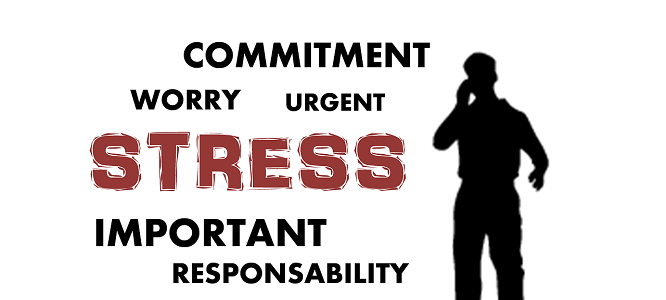
Commitment: From Nutrition To Fitness…
Sticking with a workout and nutrition plan can be wicked hard; in fact, it can suck. But staying committed is how results are achieved and are maintained indefinitely.
Trust me, you can have the best plan and trainer money can buy but if you are pounding doughnuts and soda between training sessions then you might as well save your money.
But how in the Hell do some people stay so committed month after month, year after year? They do it by implementing a series of small steps that eventually become habits! I have no idea how we all tend to think (ask my girlfriend; I’m clueless when it comes to her thoughts) so I wanted to ask some actual psychologists how to stay committed to your workout program!
Advice From the Shrinks
Commitment: Sustainable
By: Janet Zinn, LCSW, Psychotherapist
The way to help people psychologically commit to programs is to integrate them into their lives. Listen to where they are in terms of their relationship with food and exercise. Take small steps. Most people are told they need to change so much.
[Editor’s note: I love it when other experts justify what I’ve been preaching.] It’s the all-or-nothing attitude. It also gives a message that invalidates what the person does do to support their health.It’s too much of a loss for people so it’s not sustainable.
Commitment Tips
Here’s a bit of advice from me:
- Select a program that fits YOUR lifestyle.
- Convince a friend to do it with you (huge motivation).
- Create small goals. Decide to lose 5 pounds in the next 2-3 weeks. But go with small goals. Decide to lose 5 pounds and then DO IT! Once you get there you will be so motivated to lose the next 5 pounds! Keep going with that method.
- Write your goals down on paper. Having to write them down and have that physical reminder is huge! Put it on a sticky note on your computer. Make sure your goals are specific: the exact amount of weight you want to lose by the exact date when you want to lose it!
Start by implementing these 4 steps and it should help set you up. The last thing I can say is to not put it off until next month, or after Thanksgiving, or the new year. Start today and commit!
For instance, acknowledge someone for walking up or downstairs rather than taking an elevator or escalator.
Start going to the gym for 10 minutes to get into a routine rather than insisting they do a full workout. Or, listen for what fruits and vegetables they are incorporating into their diet and be positive about what they already do.
Then do simple trade-outs so they are not overhauling their entire food choices feeling like they are being bad if they have a cookie.
So often professionals have rigid, I know best approaches, and it shames clients into thinking they are bad for living the way they do. Step by step, little by little is how real, sustainable changes take place.
And, when things get tough, they don’t have to throw the entire program out, they may be able to just go back one step, knowing they can reinstate the one step when they can.
Commitment: Take It Slow
By: Dr. Ramani Durvasula, licensed clinical psychologist, professor, and author
Going to the gym or changing eating habits is more about psychology than physiology. Showing up is all of it. The most consistent problems I see are:
(a) unrealistic expectations and setting the bar too high
(b) unrealistic expectations or frustrations about results
(c) doing too much too fast.
In all cases – the person will often go gangbusters for about a week – but don’t stop to recognize how it will fit into a lifestyle – for a week you may be able to give 1-2 hours to the gym for 4 days, but after that week – real-life creeps and old habits creep back in. Same with nutrition – if you eat one way and then try to shift entirely to a raw diet you don’t find palatable – you will be cheating with Doritos behind the garage before you can say crunch.
Then – people take too much on – overly strenuous workouts that are painful and too intense – and so the person gets discouraged and feels physically uncomfortable so it becomes aversive.
Same with nutrition – as noted above – going from a variety of foods to a narrow band of foods is too much (or
too little) too fast)
Results are slow – some people may drop a quick 5-10 but then there is a plateau and that is when bad habits come back and new habits go away.
Looking at other indicators – not just the scale but also how clothes fit, and most importantly – how you feel may be more meaningful metrics
Some basic tips – take it slow. I am a big fan of a gradual buildup in the gym – to be the most important part is showing up, not what you do there in the beginning. Initially, start with a brief workout, and after a few days add intensity or time to it.
Get mastery and the push. Mastery gets you into a routine and you will often find yourself pushing yourself instead of getting turned off because you are so uncomfortable – once the routine is in place – it is easier to want to push yourself because you are there.
Dietary changes – pick your biggest pitfalls – sweet soda? Chips in the desk? Drive thru?
And make those your initial changes – 1-3 changes per week inhabits will make it easier to keep transitioning to bigger and bigger changes.
Be accountable – the reason people on TV shows about weight loss lose weight is that the whole country is watching – make yourself accountable via social media, a weight loss group, or friends – that can change your psychology and inspire you from the stories of others and be more accountable to you
Commitment: Work On Desire
By: Dr. Jeanette Raymond, Licensed Psychologist
Many of my clients come to me feeling like failures because they can’t stay committed to a healthy lifestyle program until I help them uncover their motivations for beginning on them. They say they want to, but that ‘want’ is really a ‘should’; ‘have to’, ‘ought to’ that dooms the person to fail.
*Tips on motivation to stick to a workout or nutrition routine:*
- Most people who begin such regimes are motivated by:
- Shame about their appearance or laziness.
- Fear that they may lose a partner or develop a serious health condition.
- Guilt that they haven’t kept to their commitment previously.
While these are all-powerful motivators they tend to lose their potency once you have begun the workout or nutrition program, so the likelihood of it being discontinued is enormous.
- If however, the motivation comes from *desire* to do the workout or follow the nutrition program because you feel like it, then the act of doing it that one time will make it rewarding enough to continue.
-

Commit to change your diet! It’s best to begin by doing the workout only when you feel like it to get maximum physical benefits and psychological rewards.
- When you don’t feel you “HAVE TO” that’s when it’s going to feel pleasurable enough to make it a habit.
- If it’s just “work” and is motivated by fear, guilt, and shame it will never become a routine. In fact, it will cause more shame and guilt, leading to stress.
- When working out becomes mentally associated with stress it becomes a no-no and can in some cases promote panic attacks because you feel like you are not doing what you should (i.e. you are not perfect). So before committing to any such program, it’s ESSENTIAL to work with a psychologist and work on desire – then it’s easy. Motivational speakers or self-help books don’t touch the parts of the person plagued with shame, guilt, and fear or the attempt to be perfect – so they don’t work when it comes to committing to a regimen for health and fitness.
Wrap-Up
Great stuff! I had such an overwhelming response from around the country with good advice on how to stay motivated and committed we better do a Part II this time next week.
We can always use more tips on staying motivated and committed to crush our goals.
So stop pounding the doughnuts and the soda…instead commit, stay committed, and crush your goals! Commitment – You can do it!
- Post-Workout Meal: Getting the Most from Your Workout - January 22, 2024
- 6 Ab Exercises To Blast Your Core - December 17, 2023
- 10 Office Exercises You Can Do To Burn Calories - November 19, 2023



